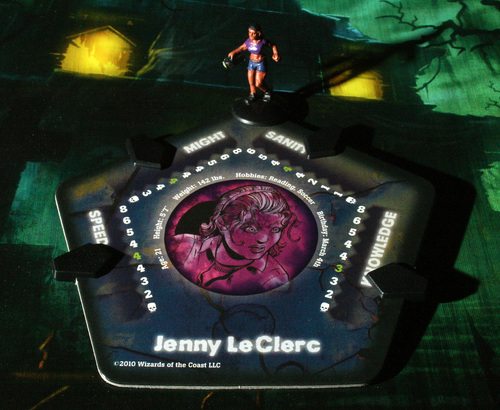
BACKGROUND: For those few not in the know, Portal is a video game released by Valve in October 2007. This, along with their other main franchises (e.g. Half Life) and the release of the Steam platform, brought huge success, and a sequel in April of 2011, Portal 2. These games have been reviewed highly due to the innovation of game play featuring the Portal Gun, a device that generates *cough* portals. This allows for 3-D puzzle solving that changed the way we play games. The question on everyone's mind is, does this game do the same?
GAME DESCRIPTION: Taking place in Aperture Laboratories, you must attempt to gather the most amount cake into the laboratory before the game ends. Each player may move any amount of their test subject in one room into any adjacent room during their turn. At the end of each turn, the board will change, as the current player must move one of the rooms at the end of the lab into the new board. If there are any test subjects in the moving room, they are returned to their original player or players, and the one with the most test subjects gets the bonus effect from that room. But all cake in the room that moved, then that cake will go into the Incinerator, never to be used again.
APERTURE/CHARACTER CARDS: The first real game changer are the cards. Each player is dealt 3 cards, which can cause various effects such as moving test subjects or cake, to bringing in and moving the Companion Cube or the Turret. The back of each card contains a character from the series, such as Chell, the Cake Core, or Wheatley. When an Aperture card is played, the Character card comes into play, giving every player a new rule to follow, like cake will no longer go into the Incinerator when it is moved from the Lab.
COMPANION CUBE AND TURRET: The other thing that makes this game unique are the Companion Cube and Turret tokens. The Companion Cube is merely a hindrance, as it can prevent any player from getting the bonus effect from the shifting room at the end. The Turret is more threatening, for if any test subjects move into the room containing the Turret, or the Turret is moved into an occupied room, all test subjects die, returning them to the player.
CONCLUSION: This game is pretty fun, but limited movement and constant delays from the cards cause the game to feel really slow. I would recommend this game if you have at least 2 other friends to play with, and enjoy very methodical plays.

